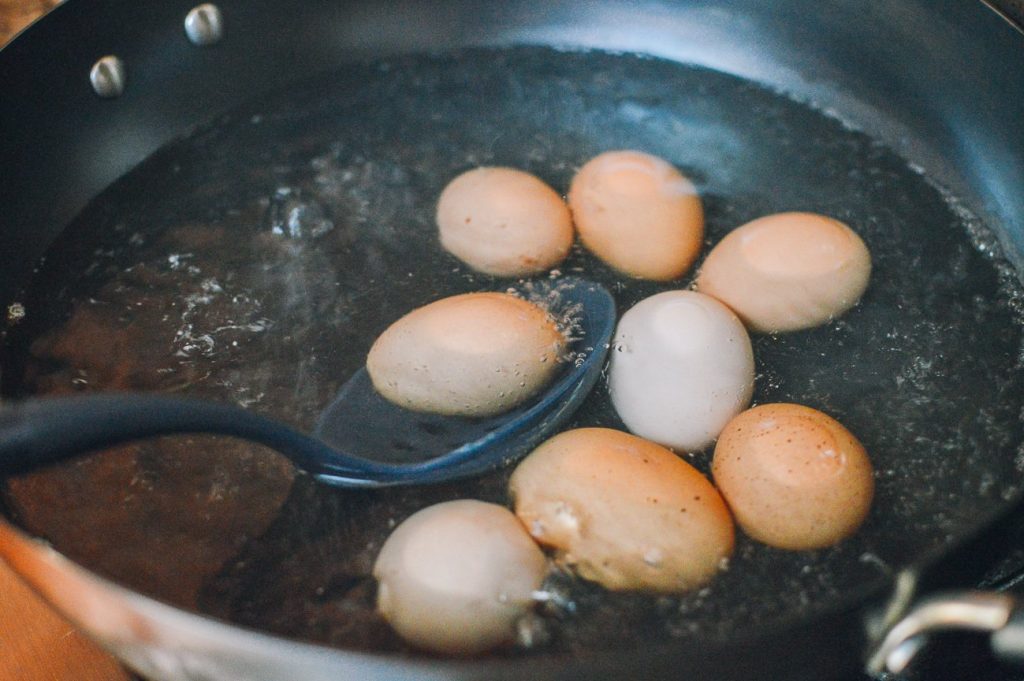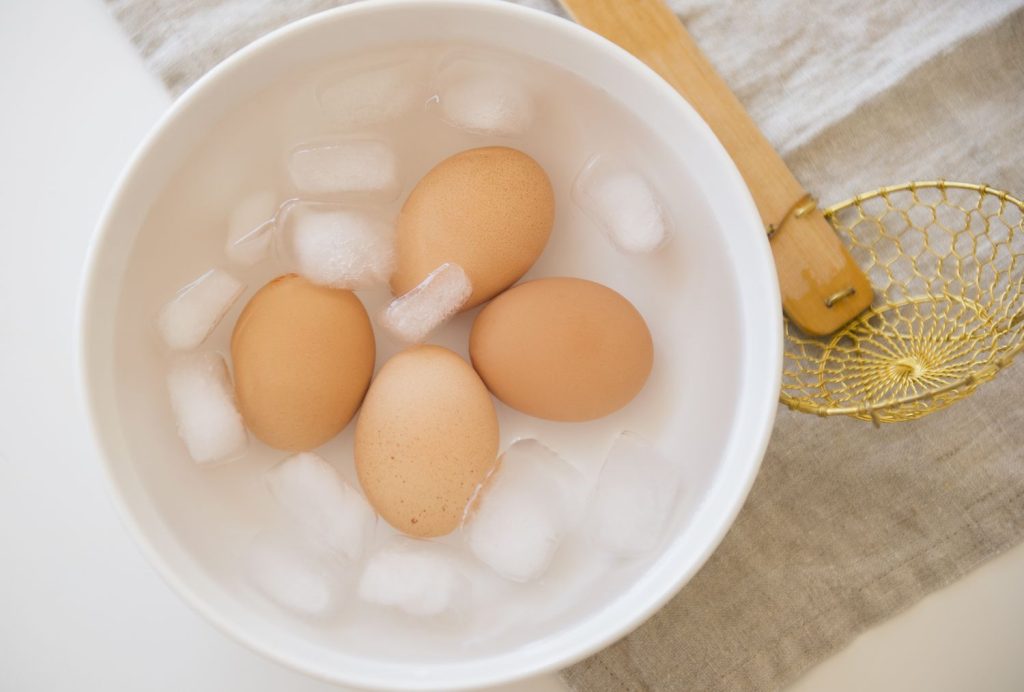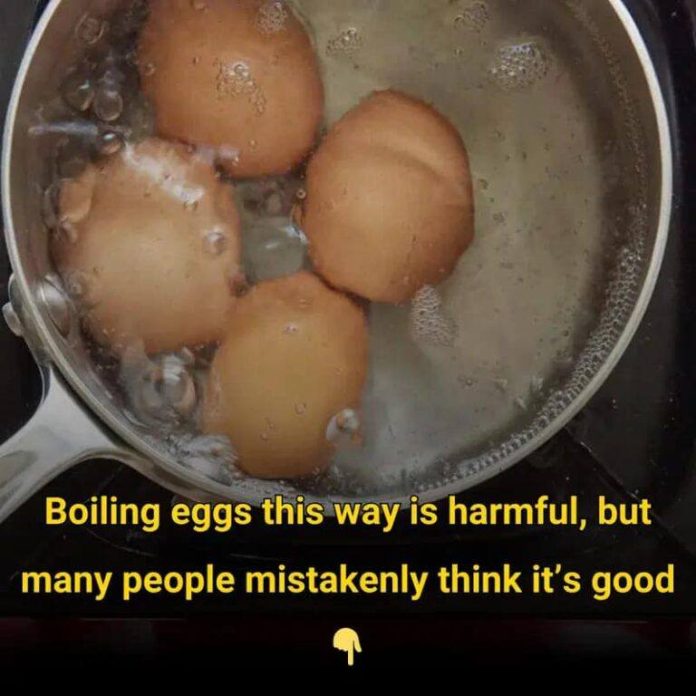Boiling eggs is a fundamental cooking technique, yet it’s surprisingly easy to make mistakes that can affect both the taste and nutritional value of the eggs. To ensure you’re boiling eggs correctly, it’s important to be aware of common pitfalls and how to avoid them.
1. Avoid Boiling Eggs with Tea
Some people boil eggs in tea to infuse flavor, but this practice can be harmful. Tea contains tannic acid, which can react with the protein in eggs to form compounds that may slow intestinal movement, potentially leading to digestive issues. To ensure safety, it’s best to boil eggs in plain water.

2. Don’t Overcook Your Eggs
Boiling eggs for too long, especially beyond 15-20 minutes, can diminish their nutritional value. Overcooking causes the iron and sulfur in eggs to combine, resulting in a greenish ring around the yolk and a chalky texture. To avoid this, monitor your cooking time carefully.
3. Start with Cold Water
Placing eggs directly into boiling water increases the risk of cracking due to the sudden temperature change. Instead, start by placing the eggs in a pot of cold water, then gradually bring it to a boil. This method allows the eggs to heat evenly and reduces the likelihood of cracks.
4. Use the Right Pot Size
Using a pot that’s too small can cause eggs to bump into each other during boiling, leading to cracks. Ensure your pot is large enough to hold the eggs in a single layer with adequate space around them. This setup promotes even cooking and minimizes the risk of damage.
5. Control the Boiling Intensity
A vigorous, rolling boil can cause eggs to jostle excessively, increasing the chance of cracking and resulting in rubbery whites. Once the water reaches a boil, reduce the heat to a gentle simmer. This gentler cooking method helps maintain the eggs’ texture and prevents overcooking.
6. Time Your Cooking Precisely
Timing is crucial when boiling eggs. For firm yet creamy hard-boiled eggs, let them sit in hot water for about 10 minutes after reaching a boil. For very firm eggs, extend the time to 15 minutes. Using a timer ensures consistency and prevents overcooking.
7. Implement an Ice Bath Post-Cooking
After boiling, transferring eggs to an ice bath halts the cooking process and prevents overcooking. This step also helps separate the egg membrane from the shell, making peeling easier. Let the eggs sit in the ice bath for at least 5 minutes before peeling or storing.

8. Choose the Right Eggs for Boiling
Older eggs tend to peel more easily than very fresh ones. As eggs age, the pH level of the whites increases, reducing their adherence to the shell. If you plan to make hard-boiled eggs, using eggs that are a week or two old can make the peeling process smoother.
9. Avoid Piercing Egg Shells
Some methods suggest piercing the eggshell to prevent cracking; however, this can introduce bacteria and create hairline fractures, compromising the egg’s integrity. It’s safer to avoid this practice and instead manage temperature changes carefully to prevent cracking.
10. Store Boiled Eggs Properly
After boiling and cooling, store eggs in the refrigerator if not consuming immediately. Keep them in their shells to maintain freshness and prevent contamination. Boiled eggs can be safely stored in the fridge for up to one week.
By being mindful of these common mistakes and following best practices, you can ensure that your boiled eggs are both delicious and nutritious. Proper technique not only enhances the taste and texture of the eggs but also preserves their nutritional benefits, making them a healthy addition to your diet.

















